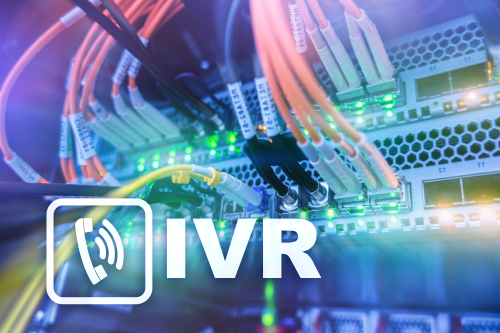Updated by 11.23.2023
IVR Systems Yield Savings While Increasing Customer Satisfaction
Digital payment solutions, such as online, mobile, and text-based payment systems, have become critical components of business’ payment acceptance technology toolbox. But savvy merchants also include an interactive voice response (IVR) system in that toolbox. Let’s explore the basics of IVR functionality and what it can bring to the table for businesses of all types.

How IVR Systems Work
IVR payment systems allow consumers to make payments by credit card, debit card, electronic check, or bank transfer, using a landline or mobile phone. The payment process requires no human operators. Instead, it is entirely automated, allowing payment acceptance 24 hours a day, seven days a week, and 365 days a year.
To initiate payments, consumers dial directly into a merchant’s IVR system or call a toll-free telephone number. The system answers the call with a “welcome” message that gives users step-by-step instructions on making their payment. This involves following a series of prompts and providing information (e.g., bank account or credit/debit card information) to the system through voice recognition or the touchtone keypad on the phone.
Benefits of IVR Systems
Cost Savings
Cost savings tops the list of advantages enjoyed by businesses that implement an IVR system. No human intervention means no need to hire, pay, and train staff to process payments. Companies also avoid overtime labor expenditures and the cost of expanding the labor pool to accommodate increasing check and call volumes. The result is significant cost savings. Additional cost reductions come from eliminating long waits for consumers to reach a live agent and the expense incurred from these long-distance calls.
According to a recent survey by ContactBabel, businesses pay seven times more per call when consumers speak with a live agent to complete a payment than when payment is made via an IVR system. Or consider this hypothetical example, from a provider of IVR technology such as that available through E-Complish: A company generates 5,000 invoices per month; of these invoice recipients, an average of 750 callers (15 percent) pay their bill by phone. Phone calls are handled by employees whose hourly wage is $20. Annual savings, in this case, exceeds $80,000.
Faster, More Timely, Less Problematic Collection
Many consumers delay making payments the traditional way writing checks and mailing them or delivering them personally because they have other priorities or would rather not expend the effort to do so. Others may send payments as they are supposed to, only to have them arrive at their destination late or not at all.
IVR systems allow businesses to skirt these obstacles. When check-writing and delivery are removed from the equation, merchants receive payments more quickly and with fewer glitches. The likelihood that consumers will procrastinate when it comes to paying their bills or neglect to handle the task decreases when consumers can accomplish the task by using the telephone. And of course, payments made by telephone cannot get lost in the mail.
Additionally, with IVR systems in place, businesses need not worry about the accuracy of customer account information entered into payment systems by employees. Fewer mistakes lead to happier customers more about that below.
Increased Customer Satisfaction and Loyalty
Giving customers the opportunity to pay bills by phone on their terms, rather than on business terms, also paves the way for happier, loyal customers, again shoring up the bottom line. When consumers pay via IVR solutions, they don’t waste time waiting to speak with an operator because assistance from the system is available the moment calls are answered. The less time consumers spend on the telephone to handle their bills, the happier they will be and the greater their inclination to do business with merchants again and again rather than switch to the competition.
The option to pay by phone via an IVR may be especially helpful in appealing to older customers who are not as comfortable or not at all comfortable with mobile or text-based payment systems but still want an alternative to paper-based payment methods. It also permits businesses to offer non-paper-based payment options to consumers who do not have Internet access.
Better Use of Employees’ Time
When employees aren’t stuck opening envelopes and handling checks or sitting on the phone accepting payments they can turn their attention to other, more important tasks. This, in turn, can benefit the business.
Increased Security
IVR systems enhance data security by eliminating the need for customers to enter their personal financial details online, and share sensitive information (and potentially have it repeated aloud by) strangers in distant call centers. This not only reduces fraud; it bolsters consumer confidence. Additional security comes from encrypting and tokenizing private data before it is sent to a transaction processing server making specific customer information impossible for business employees to view or access and safeguarding companies and their clientele from security breach consequences.
Implementing E-Complish’s DirectPay IVR system is an easy way to reap the benefits of IVR technology. To find out more schedule a consultation.
Table of Contents
Table of Contents

